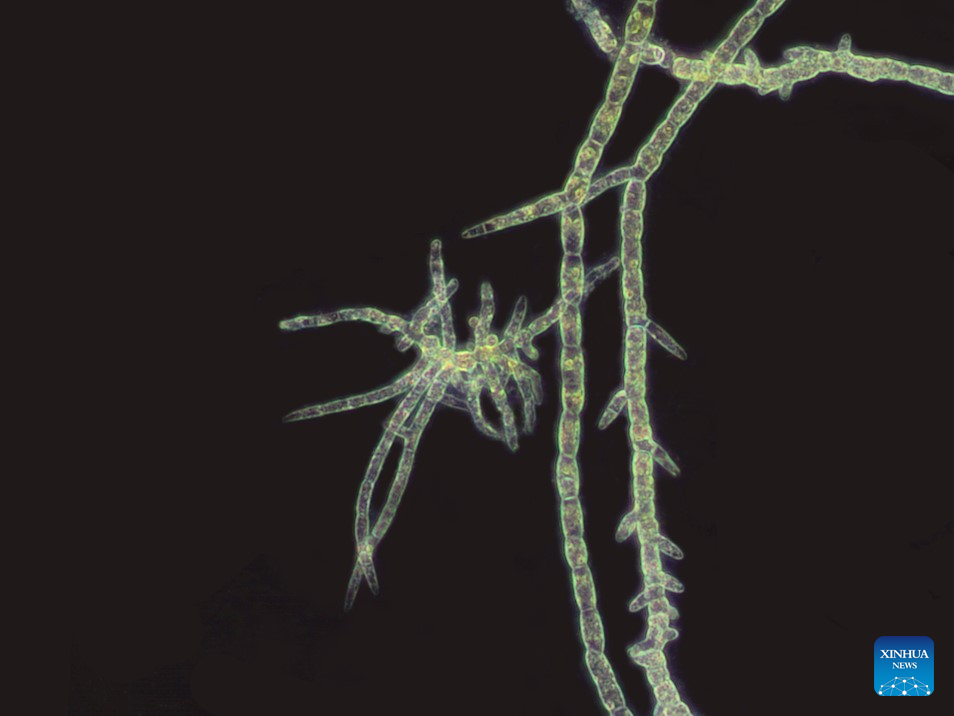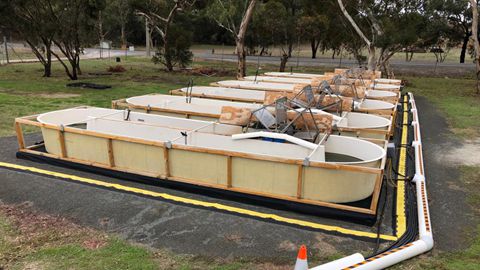Researchers use algae to recycle wastewater in drought-stricken regions
Source: Xinhua
Editor: huaxia
2025-07-05 09:39:15

This photo taken on June 11, 2025 shows "sequencing batch reactors" treating effluent and removing biosolids at a wastewater treatment plant in the Barossa Valley, South Australia. (Flinders University/Handout via Xinhua)
CANBERRA, July 5 (Xinhua) -- Researchers are advancing a green solution to water scarcity by using algae to recycle wastewater in drought-stricken rural regions.
Flinders University researchers in South Australia are trialing enhanced high-rate algal pond (HRAP) systems that incorporate native filamentous algae, enabling faster, more efficient wastewater treatment and easier removal of solids, according to a statement from the university on Friday.
This breakthrough not only improves water quality for non-potable uses like irrigation, but also offers a low-cost, energy-efficient alternative to traditional sewage treatment, addressing critical water shortages faced by regional communities, the statement said.
Local councils in South Australia are using HRAP systems, where low-energy paddlewheels circulate wastewater through channels filled with microalgae and bacteria that remove contaminants, researchers said.
"Algae-bacterial granule formation is a positive way for biofilms to form dense, fast-settling biomass and improve treated wastewater quality," said Flinders University PhD researcher Sam Butterworth.
Researchers are now testing advanced "sequencing batch reactor" HRAP technology at a South Australian wastewater treatment plant, aiming to optimize biological processes for faster, more efficient wastewater treatment without major new investment. ■

This image taken on July 4, 2025 shows a native freshwater filamentous algal population. (Flinders University/Handout via Xinhua)




